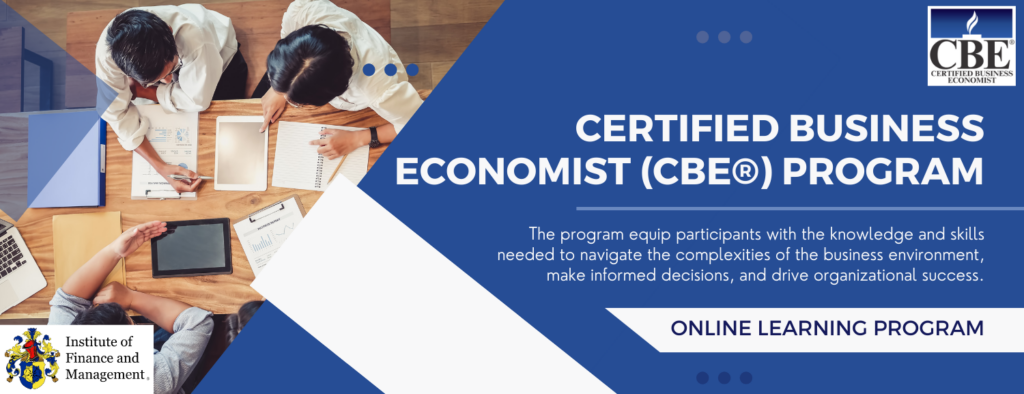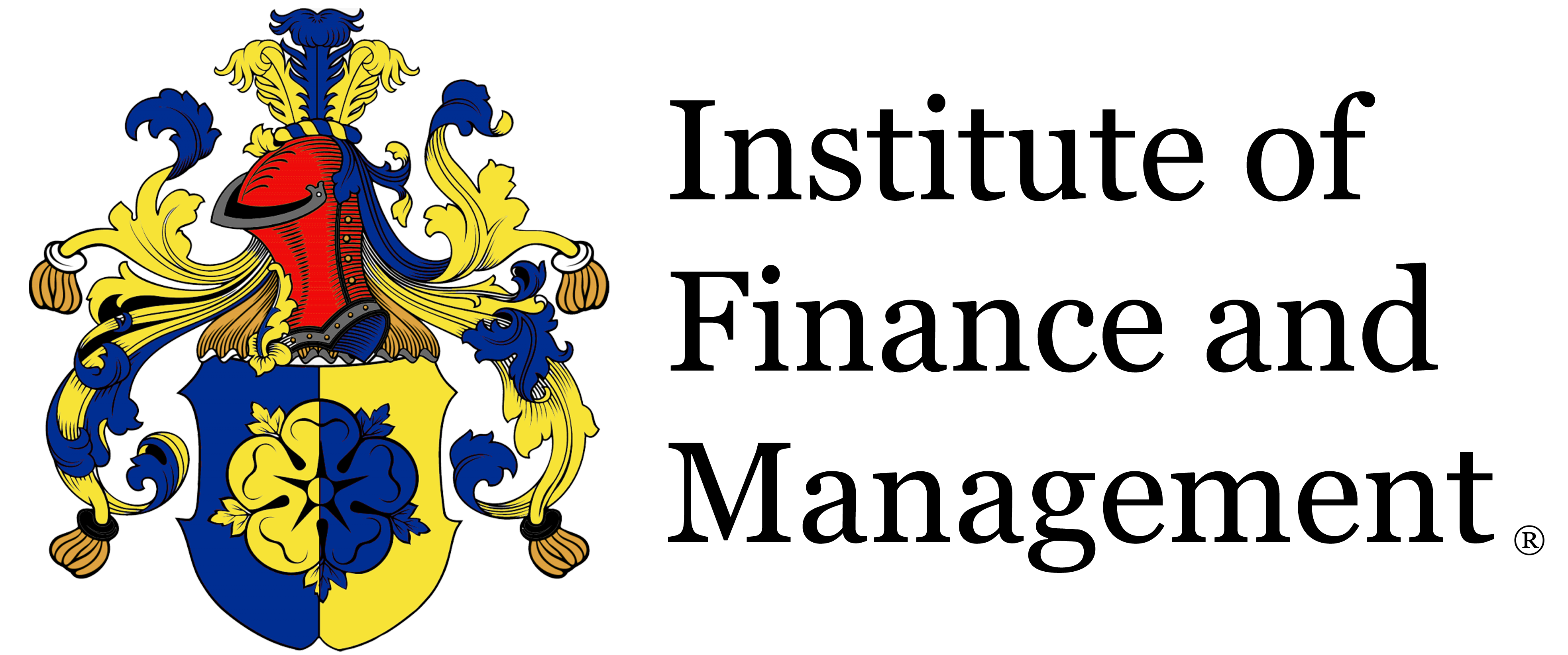
OVERVIEW
The Certified Business Economist (CBE®) Program is designed to equip professionals with a comprehensive understanding of the economic principles and their applications in the business context.
This program covers a wide range of topics, including organizational goals, market dynamics, financial systems, macroeconomic and international business contexts.
Through this program, participants will develop analytical skills and strategic insights necessary for making informed business decisions in a globalized economy.

Learning Objectives
Upon completing the Certified Business Economist (CBE®) Program, participants will:
- Differentiate Organizational Goals – Understand and distinguish between the goals of profit-seeking organizations, not-for-profit organizations (NFPs), and governmental organizations. Analyze how these goals influence management decision-making and organizational behavior.
- Analyze Market Dynamics – Explain the functioning of demand and supply curves, identify equilibrium prices, and assess the impact of price elasticity on a firm’s revenue and market structure. Evaluate the sources of market failures and the policies to address them.
- Understand Financial Systems – Describe the roles of various financial assets, markets, and institutions in managing organizational liquidity and providing economic returns. Explain the role of commercial banks, central banks, and the foreign exchange market in the economic system.
- Evaluate Macroeconomic Indicators – Assess macroeconomic phenomena including national income, inflation, unemployment, and trade balances. Understand the stages of the trade cycle and their implications for government policy and business strategy.
- Interpret International Economic Data – Distinguish between data and information, and utilize graphs, charts, and diagrams to interpret economic data. Apply techniques to forecast trends and patterns in international business contexts, facilitating informed decision-making.
Body of knowledge
The CBE® program offers an in-depth and rigorous curriculum designed to build the analytical, strategic, and decision-making skills required in today’s economic environment. The key areas of focus within the program include:
Applied Economics
- A foundational exploration of core economic principles, including microeconomics and macroeconomics, with practical applications in business strategy, market analysis, and policy evaluation.
Data Analytics for Economists
- Techniques for analyzing economic data, covering econometrics, time-series analysis, and the use of statistical software to model and interpret economic trends and business performance.
Monetary and Fiscal Policy
- Understanding the role of central banks, interest rates, government spending, and taxation in shaping economic outcomes. Participants learn to assess the impact of policy decisions on businesses and economies.
Global Economics and Trade
- Insights into international trade, exchange rates, and global market dynamics, emphasizing the interconnectedness of global economies and the implications for businesses operating in diverse markets.
Business Strategy and Economic Decision-Making
- Application of economic theories to business decision-making, including pricing strategies, demand forecasting, competitive analysis, and risk management in uncertain environments.
Financial Markets and Institutions
- A study of the structure and function of financial markets, with emphasis on understanding how financial instruments, markets, and institutions influence economic activities and corporate strategies.
Economic Policy Analysis
- Tools for analyzing the economic impact of policies at both national and international levels, with a focus on regulatory environments, economic development, and public policy.
Ethics and Professional Standards in Economics
- Exploration of ethical issues in the practice of economics, emphasizing the importance of integrity, transparency, and professionalism in economic analysis and reporting.
